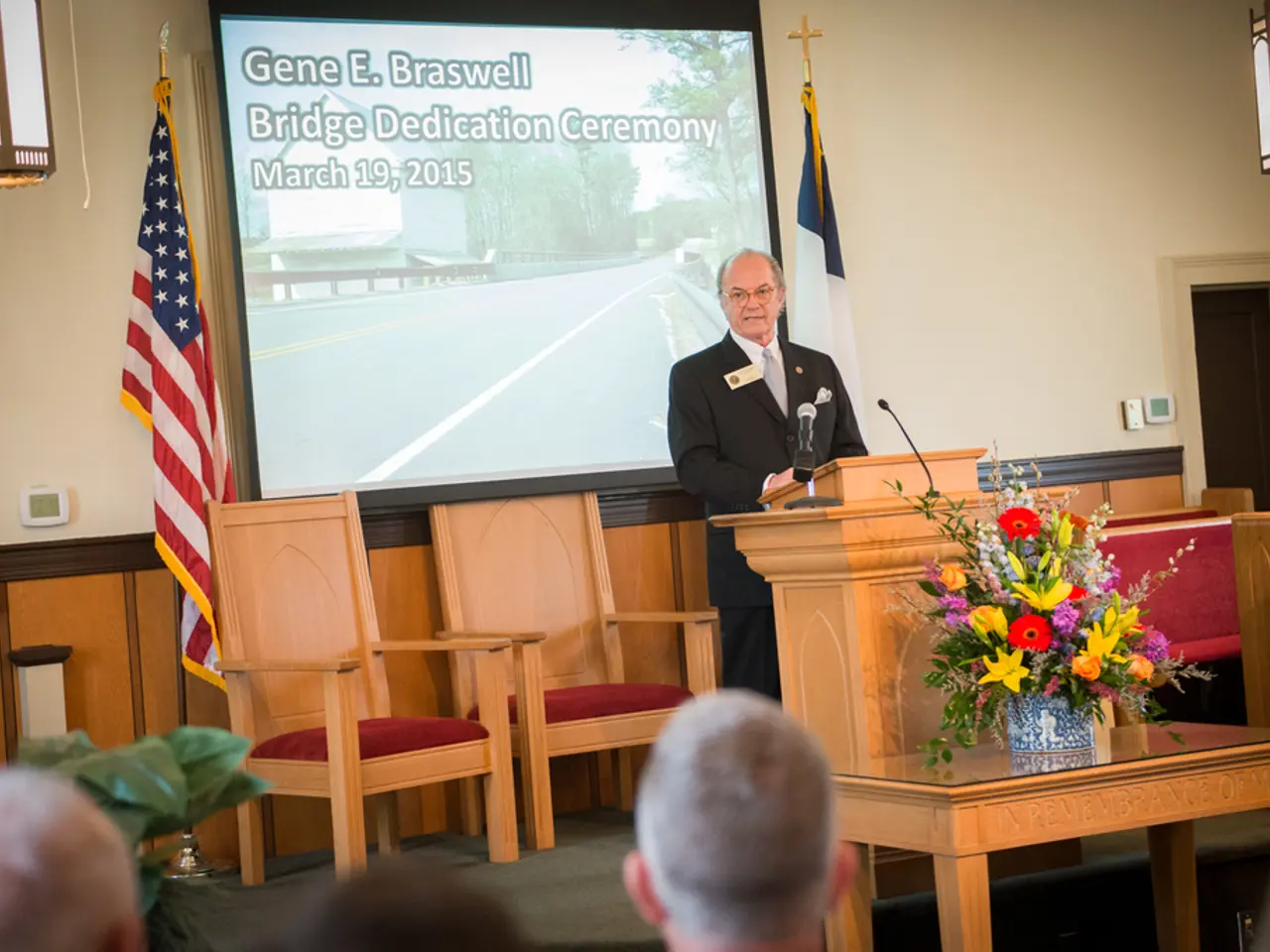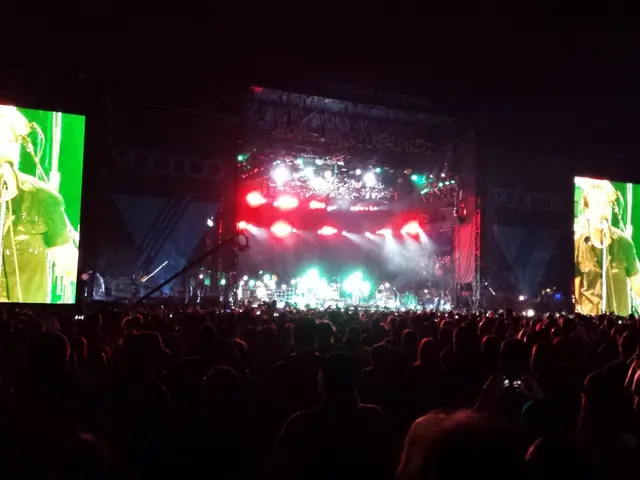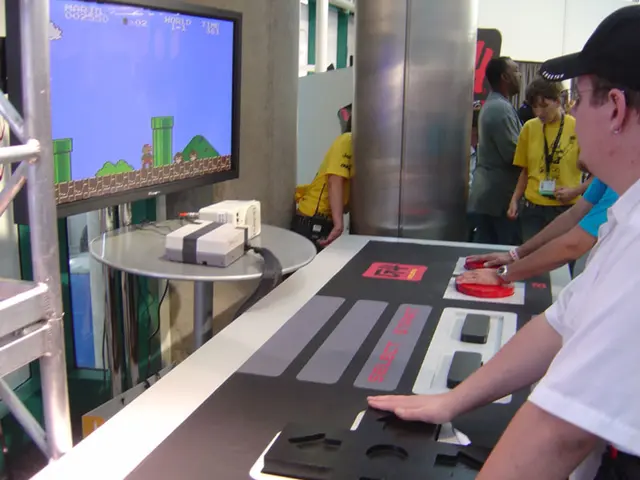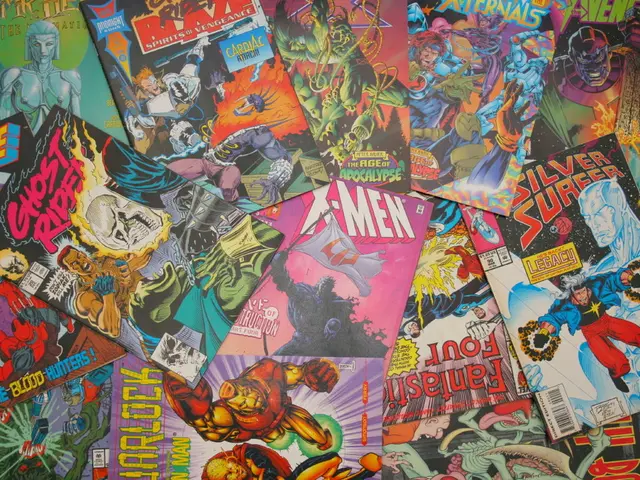Political twist in Trump's UK state visit following ceremonious royal greeting
Trump's Second State Visit to the U.K.: A Mix of Ceremony and Controversy
U.S. President Donald Trump is currently on an unprecedented second state visit to the United Kingdom, marking a significant event in British-American relations. The visit, which began with a grand welcome at Windsor Castle, has been a spectacle of ceremonial pageantry and political intrigue.
King Charles III welcomed President Trump with a grand ceremony featuring gun salutes, mounted horses, and bagpipes. The largest guard for a state visit in living memory, the soldiers wore red tunics and gold plumed helmets. Trump inspected the troops at Windsor Castle, laughing and joking with the U.S. leader.
The white-tie state banquet, attended by 160 guests, including senior royals, U.S. Secretary of State Marco Rubio, media mogul Rupert Murdoch, Apple CEO Tim Cook, and golfer Nick Faldo, followed the ceremonial welcome. The menu for the banquet included watercress panna cotta, quail egg salad, chicken wrapped in courgettes, and vanilla ice cream bombe with raspberry sorbet.
King Charles III praised Trump's personal commitment to resolving global conflicts during his speech at the banquet, while emphasizing the importance of environmental responsibility for current leaders. Trump described the state visit as 'one of the highest honors of my life' and compared the United Kingdom and United States to 'two notes in one chord.'
However, the visit took a serious turn on Thursday with wide-ranging talks hosted by Prime Minister Keir Starmer. Pressing issues such as trade, Ukraine, and Gaza are on the agenda for the talks. The talks could be affected by political troubles at home for Prime Minister Starmer, including his sacking of U.K. ambassador to Washington, Peter Mandelson, over a furore involving Mandelson's connections to the late U.S. sex offender Jeffrey Epstein.
Epstein has also been a source of controversy for Trump, with further revelations about their relationship in the 1990s emerging recently. Four people were arrested after projecting images of Trump and Epstein onto Windsor Castle late Tuesday.
On the economic front, British pharmaceutical group GSK announced it will invest $30 billion in the United States over the next five years. U.S. private equity giant Blackstone plans to invest £90 billion ($123 billion) on U.K. projects over the next decade, although the specific company committing to this investment is not explicitly mentioned.
The visit comes amidst an ongoing trade war, with the United Kingdom hoping to secure further concessions, including the reduction of 25-percent duties on aluminium and steel to zero. Starmer's warm tone with Trump has won some leniency in the president's trade war, resulting in an 'economic prosperity deal' between the two countries in May.
Trump was expected to witness an unprecedented joint flypast of U.S. and U.K. jets, but bad weather caused the American planes to withdraw. An estimated 5,000 people marched through central London, protesting Trump's visit and expressing support for Palestine.
The talks will take place at Prime Minister Starmer's country residence, Chequers. Trump's non-committal comments suggest an agreement on these concessions is not imminent. The visit, thus, continues to be a mix of ceremony, controversy, and negotiations, reflecting the complexities of international diplomacy.
Read also:
- United States tariffs pose a threat to India, necessitating the recruitment of adept negotiators or strategists, similar to those who had influenced Trump's decisions.
- Weekly happenings in the German Federal Parliament (Bundestag)
- Southwest region's most popular posts, accompanied by an inquiry:
- Discussion between Putin and Trump in Alaska could potentially overshadow Ukraine's concerns








